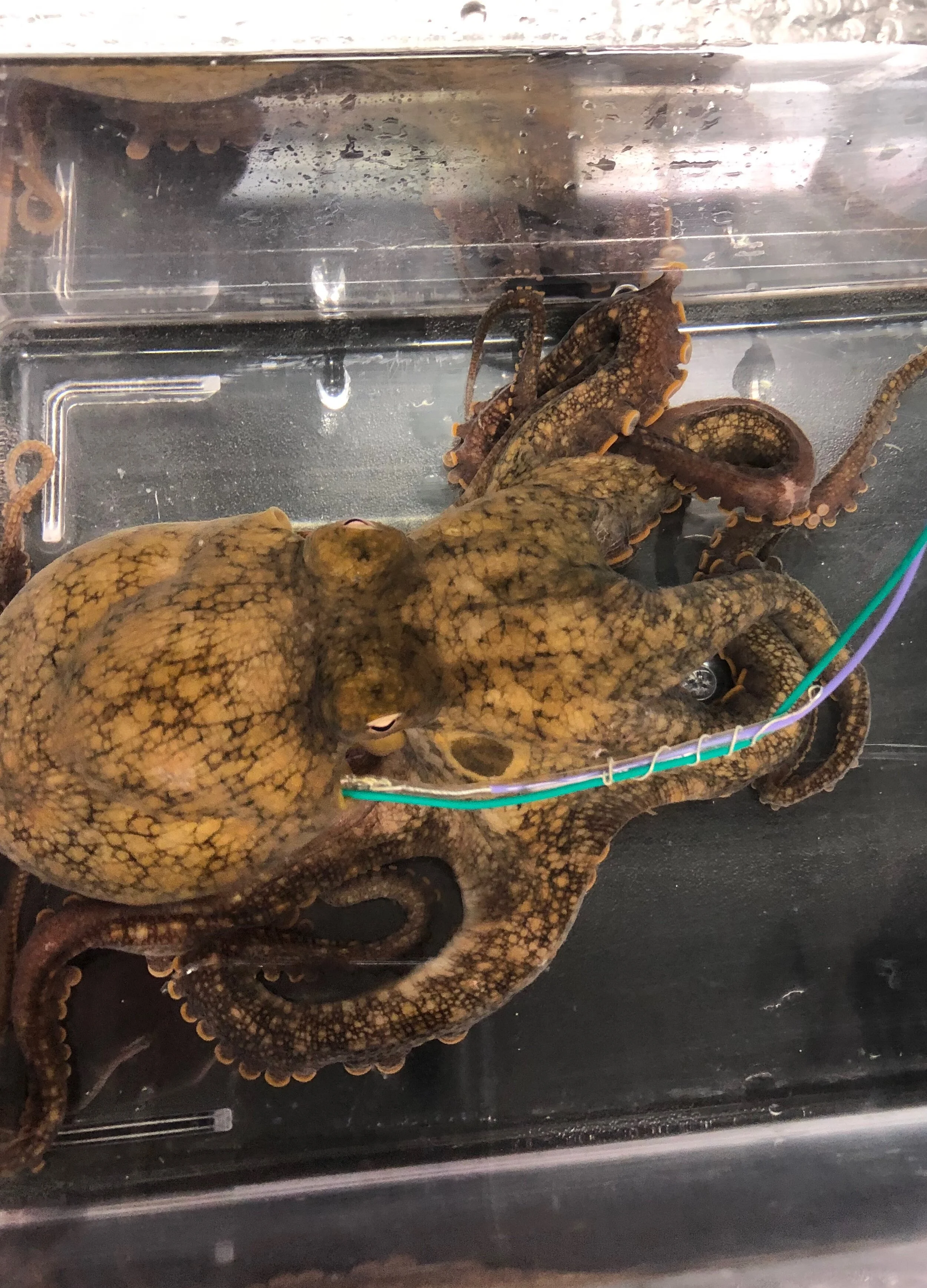The lab’s latest paper on anesthesia of cephalopods, “Anesthetic Efficacy of Magnesium Chloride and Ethyl Alcohol in Temperate Octopus and Cuttlefish Species” has just been published in JAALAS, the Journal of the American Association of Laboratory Animal Science. This paper was a joint effort between the Crook Lab and the Marine Biological Laboratory, one of the major cephalopod culturing facilities in the United States. Lisa Abbo, who lead the study and is the first author on the paper, is the staff veterinarian at the MBL. In this paper we use the same methods that we have used previously to study anesthesia in tropical species, and we show that in temperate species, the effects are similar. For the first time we also assess differences in anesthesia in young and old animals, showing that senescence complicates and extends anesthesia durations, and also increases adverse effects.
In future work we plan to study analgesia in both temperate and tropical cephalopod species, to continue to support efforts to ensure humane treatment of cephalopods in research laboratories worldwide.
